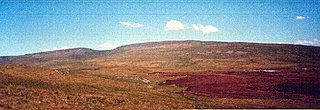Notes
- 1 2 "Robin Llywelyn". contemporarywriters.com. Archived from the original on 12 October 2009. Retrieved 29 January 2011.
- ↑ "Winners of the Prose Medal". National Eisteddfod of Wales. Retrieved 27 December 2019.
Robin Llywelyn (born 24 November 1958) is a Welsh novelist, writing in both Welsh and English. His works include From Empty Harbour to White Ocean, winner of the National Eisteddfod Prose Medal. [1] He is also the managing director of Portmeirion Ltd which runs the Italianate village of Portmeirion built by his grandfather Sir Clough Williams-Ellis.
Llywelyn was born in Llanfrothen and was educated at University of Wales, Aberystwyth, where he studied Welsh and Irish. Llywelyn has written three novels in Welsh; Seren Wen ar Gefndir Gwyn (1992), which won the 1992 National Eisteddfod of Wales prose medal [2] and the Arts Council of Wales Book of the Year Award; O'r Harbwr Gwag i'r Cefnfor Gwyn (1994), winner of the 1994 Eisteddfod of Wales Prose Medal and BBC Writer of the Year Award; and Un Diwrnod yn yr Eisteddfod (2004). [1]

In Welsh culture, an eisteddfod is an institution and festival with several ranked competitions, including in poetry and music. The term eisteddfod, which is formed from the Welsh morphemes: eistedd, meaning 'sit', and fod, meaning 'be', means, according to Hywel Teifi Edwards, "sitting-together." Edwards further defines the earliest form of the eisteddfod as a competitive meeting between bards and minstrels, in which the winner was chosen by a noble or royal patron.
Islwyn Ffowc Elis was one of Wales's most popular Welsh-language writers.

Archdruid is the title used by the presiding official of the Gorsedd. The Archdruid presides over the most important ceremonies at the National Eisteddfod of Wales including the Crowning of the Bard, the award of the Prose Medal and the Chairing of the Bard. Although Iolo Morganwg was the first to preside over the Gorsedd when the National Eisteddfod came into being, his successor David Griffith, under the bardic name "Clwydfardd", was the first to be known by the official title "Archdruid".
This article is about the particular significance of the year 2004 to Wales and its people.

The National Eisteddfod of Wales is the largest of several eisteddfodau that are held annually, mostly in Wales. Its eight days of competitions and performances are considered the largest music and poetry festival in Europe. Competitors typically number 6,000 or more, and overall attendance generally exceeds 100,000 visitors, the highest recently being 118,000 attending the 2022 festival. The 2018 Eisteddfod was held in Cardiff Bay with a fence-free 'Maes'. In 2020, the event was held virtually under the name AmGen; events were held over a one-week period.
This article is about the particular significance of the year 1995 to Wales and its people.
This article is about the particular significance of the year 1994 to Wales and its people.

This article is about the particular significance of the year 1992 to Wales and its people.
This article is about the particular significance of the year 1991 to Wales and its people.
This article is about the particular significance of the year 1988 to Wales and its people.
This article is about the particular significance of the year 1966 to Wales and its people.
This article is about the particular significance of the year 1958 to Wales and its people.
This article is about the particular significance of the year 1953 to Wales and its people.
Dafydd Ifans is a contemporary Welsh language novelist and translator, born in Aberystwyth in Ceredigion, west Wales.
This article is about the particular significance of the year 2008 to Wales and its people.

Welsh-language literature has been produced continuously since the emergence of Welsh from Brythonic as a distinct language in around the 5th century AD. The earliest Welsh literature was poetry, which was extremely intricate in form from its earliest known examples, a tradition sustained today. Poetry was followed by the first British prose literature in the 11th century. Welsh-language literature has repeatedly played a major part in the self-assertion of Wales and its people. It continues to be held in the highest regard, as evidenced by the size and enthusiasm of the audiences attending the annual National Eisteddfod of Wales, probably the largest amateur arts festival in Europe, which crowns the literary prize winners in a dignified ceremony.

The Gold Medal of the National Eisteddfod of Wales is awarded annually in three categories for excellence in Fine Art, Architecture, or Craft and Design.
Huw Llywelyn Davies is a Welsh broadcaster and rugby union commentator.
Gareth Finlay Williams was a Welsh language author who wrote novels for children and adults, as well as creating many television drama series.
Rhiannon Davies Jones was a Welsh historical novelist, lecturer and Welsh nationalist who wrote in Welsh. Educated at University College Bangor, she won two prizes for short novels, two Prose Medals at the National Eisteddfod of Wales and the crown at the 1973 Anglesey Eisteddfod. Jones published ten novels with her works covering fictional diaries, her political beliefs and responses to political events, and Welsh kings and princes.